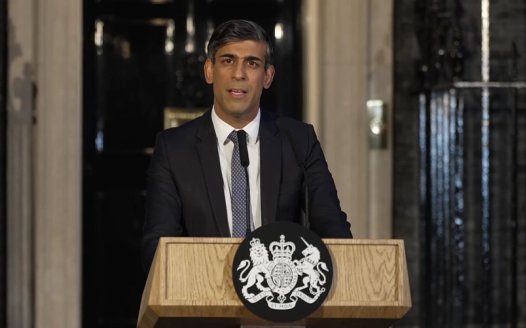Embedded religious privilege triumphs on Scottish education issues
Posted: Mon, 12th May 2014 by Alistair McBay
National Secular Society's spokesperson for Scotland, Alistair McBay, argues that the Scottish Parliament has helped entrench religious privilege in the country's education system.
Tuesday 6 May was a busy day in the Scottish Parliament which saw a triumph for embedded religious privilege in the country's sectarian education system.
Two secular petitions were heard by the Education and Culture Committee of the Scottish Government. The first, submitted by the Scottish Secular Society, sought to change required religious observance (RO) in Scottish state schools from a parental opt-out to an opt-in basis. The Committee rejected the petition, but did urge the Scottish Government to see that parents were better advised of the right to opt-out their children. They also advised that schools should make better provision of 'meaningful' alternatives for those opted out. This was a predictable cop-out by the Committee and will have come as welcome news to religious interests in Scotland, although it was to be expected given the Scottish Government's now reaffirmed support for RO in schools.
Here is an example of why the decision was never going to be anything else, in spite of some excellent campaigning for change. A report submitted by the NSS to Education Scotland last year stated that in our view the present guidance issued by the Scottish Government in 2011 betrayed four underlying beliefs:
Now consider in this context this paragraph from this current guidance to schools, which at Tuesday's hearing the Scottish Government said remained 'relevant and up-to-date":
"Scottish Government Ministers consider that religious observance complements religious education and is an important contribution to pupils' development. It should also have a role in promoting the ethos of a school by bringing pupils together and creating a sense of community. Schools are therefore encouraged to inform parents of this without applying pressure to change their minds.
This is a clear endorsement of RO as an essential element to religious education, positively underpinning the creation of a school ethos with the need for all pupils to participate in confessional religious experiences. In effect the only RO experience children get in Scotland is of a Christian variety – Protestant in non-denominational schools, Catholic in Catholic schools. No explanation is offered as to why such an experience is necessary to create 'a sense of community', nor why creating a sense of community without it is impossible. The so-called encouragement to schools 'to inform parents of this (essential ethos element) without applying pressure to change their minds'is clearly intended to play a guilt-trip on parents, that by withdrawing their children from RO (regardless of whether they opt-out or don't opt in) they will be undermining the very ethos of the school. What parent would want to be singled out as being responsible for that? As the NSS has also demonstrated, it is no longer simply a case of a child being withdrawn from a formal RO assembly setting. With RO to be practised in a wider range of school activities beyond the 'most common vehicle' of the school assembly, it becomes very difficult for pupils to be withdrawn on every RO occasion. No doubt this is also a desirable outcome from the current guidance.
So let's not hold our breath as to how these revised guidelines will be phrased and implemented, given that the underlying belief of the Scottish Government is that RO is a good thing and must remain. It is not simply, as the chairman of the Education and Culture Committee stated, a case of parents being made fully aware of their rights. It is a case of the Scottish Government supporting what amounts to religious indoctrination in so-called non-denominational schools. And so we might reasonably ask if the revised guidance will alter the instruction to inform parents exercising their right to opt-out that RO is essential for a school ethos and community culture "without applying pressure to change their minds". In an interesting observation, the Committee quoted the Scottish Government as stating that a switch from a parental opt-out to an opt-in would not be 'helpful' to young learners. What does that mean, I wonder? If an opt-in was granted, might it mean that not enough parents would take up the option, such that Government's effort to promote indoctrination in schools to the maximum number of pupils would be diminished? Why are parents who exercise their right to opt their children out not being helpful to their children's learning process?
The Education and Culture Committee also disposed of the Edinburgh Secular Society petition. This sought to secure removal of the legal obligation on Scottish local authorities to accept the nomination of three external voting religious members to their education committees which are otherwise composed of elected councillors. The Committee convenor stated that since the Scottish Government had made known its opposition to changing this, so there was no point in pursuing it.
Should we be surprised? The Scottish Government was unlikely to consider any dilution of the embedded Christian privilege in the education system so soon after the same-sex marriage debate. There remains a large residual fury among Christian organisations in Scotland over the same-sex marriage consultation and its eventual passing on to the statute book. Even now Christians continue to misrepresent the Government same-sex marriage consultation as a referendum which ignored the wishes of the majority in Scotland. It remains a worry that, with an independence referendum and draft constitution awaited, there will be some sort of conciliatory offering to religious groups in the wake of the same-sex marriage legislation. Perhaps we are already seeing this in the dismissal of these two secular petitions. It must also be remembered that the Scottish Government counts both the Church of Scotland and the Scottish Catholic Church as key strategic partners. It is hardly likely to demonstrate this by emasculating them.
It mattered not in the consideration of the ESS petition that it drew support from the Equality and Human Rights Commission. The EHRC pointed out to the Scottish Government that Section 149 of the Equality Act requires public authorities in Scotland to give due regard to the need to eliminate unlawful discrimination, harassment and victimisation; advance equality of opportunity between different groups; and foster good relations between different groups. While the legislation concerning religious representatives predates these public sector equality duties, the Commission nevertheless believed an appropriate course of action for Scottish Ministers "may be to assess whether these provisions and the policies and practices which flow from them meet the requirement to give due regard to the three elements of the Equality Duty listed above."
Was this consideration given in the Scottish Government's decision-making process? If not, why not? And if so, on what basis was the EHRC advice rejected? Why was the responsible Scottish Government minister, Mike Russell MSP (coincidentally a member of the Scottish Episcopal Church) not called to the Committee to explain his reasons for dismissing the EHRC advice?
The issue will be raised again in the coming weeks, this time in the main Parliament chamber, in a private member's bill on transparency and accountability in Scottish local government being pursued by independent MSP John Finnie.
In conclusion then, May 6 2014 was a good day for the defence of unwarranted religious privilege in the Scottish education system, and a bad day for equality, democracy and community cohesion. While the Scottish Government is now aware of a growing body of objection to the influence of religious organisations in education, the churches and other faiths have also been alerted to this and any complacency in their ranks has been thoroughly dissipated. Their well-funded and resourced lobby machines will be redoubling their defensive efforts to continue to use Scotland's schools as pulpits. It seems, sadly, that they can count on the Scottish Government for support while continuing their tailspin of decline – currently the Church of Scotland has no fewer than 25 churches and church halls for sale.







